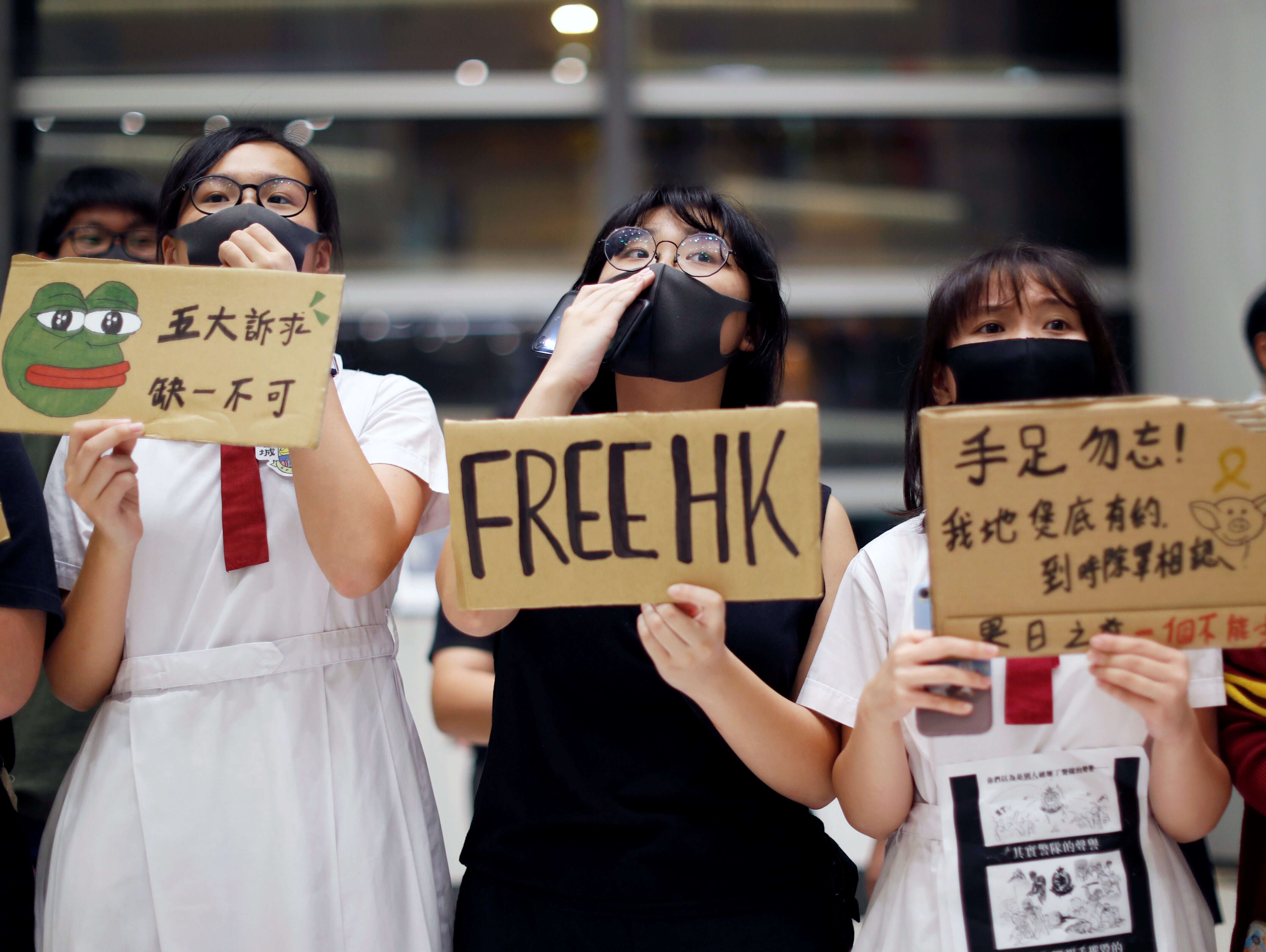
While it doubtlessly compromises the survival of the pro-democracy protest movement by exposing demonstrators and activists to arrests, the new national security law for Hong Kong also puts press freedom in peril.
The legislation grants China unprecedented new powers to punish what it considers as acts of secession, subversion, terrorism and collusion with foreign or external forces and came a little over one year after the beginning of the anti-extradition law protests, which mutated into a wider pro-democracy movement reigniting the call for universal suffrage.
According to the Hong Kong Journalists Association’s annual report published on 7 July, press freedom in the city has hit a record low in 30 years.
As the Hong Kong protests unfolded, journalists were repeatedly targeted by the police force and physically thwarted from doing their job. Over 90% of journalists surveyed by the HKJA said police had used violence to deliberately obstruct reporting on the protests.
Although Article 4 of the new law protects freedoms of speech, of the press and of publication, its overriding powers makes these guarantees virtually insignificant. The loose definitions given to crimes instated by the legislation mean that Beijing has the power to determine whatever it considers as “threats to its national security”.
Confronted with a grey-zone, journalists are yet to discover the new boundaries of their reporting and of their safety.
Recently graduated with a master’s degree in journalism from the University of Hong Kong, I had planned to start my career as a journalist in Hong Kong long before the announcement for the new law was made. Today, I am entering a profession faced with the challenge of redefining itself.
Reporters will have to find new ways to guarantee the protection of their sources as they could be forced to disclose their correspondences when reporting on sensitive subjects. The new law also brings Hong Kong’s internet within China’s Great Firewall, subjecting online content to government censorship and granting authorities the access to private user data.
Asked whether she could guarantee journalists would not be punished under the law during their work, Hong Kong Chief Executive Carrie Lam said if all reporters in Hong Kong can give her “a 100% guarantee that they will not commit any offences under this piece of legislation” then she can do the same.
I hear this as a clear message not only that the Hong Kong government will not protect press freedom in the face of the new law, but also that journalists are undeniably targeted by the new restrictions. A bleak horizon for reporters in the city.
I grew up in Beijing, and the idea that Hong Kong could be stifled in the same way fills me with bitter disappointment. Half French, I was brought up with the idea that freedom of expression is an inalienable right and that it should be protected at all costs.
Yet living in China offered me a different reality. Expression – whether political or artistic – was only tolerable within the rigid boundaries of what was considered acceptable by the government. Censorship and self-censorship were part of everyday life.
I remember watching the news on international TV channels, and regularly seeing the screen suddenly turn black when Chinese government affairs were discussed. In 2009, Youtube and Facebook were blocked, followed by Google, Instagram and a long list of websites in the following years. Keywords such as “Tibet” and “Xinjiang” had to be avoided in online searches and even in private messaging.
I don’t remember ever engaging in political debates with my local classmates and friends and I only discovered what a protest looked like after I moved away from Beijing. Although I had learned about the Tiananmen massacre through foreign history books, discussing it publicly was indisputably off the table. On the rare occasions where I dared asking locals about it, they said they weren’t aware of what had happened, or gave me a look dark enough to make me swallow my curiosity.
Today, my primary concern is not a political one – Hong Kong’s democratic prospects are an entirely separate debate. Rather, it lies in the fear that the city’s cherished freedoms might be taken away and never given back, in the angst that free and independent journalism in Hong Kong has become compromised and is seriously endangered.
Local and foreign reporters in Hong Kong need to come together and craft new strategies to protect sources, ensure their safety and preserve the integrity of their work. It will likely be an uphill battle, but our resolve must stand.
Nina Milhaud graduated with a master’s degree in journalism from the University of Hong Kong. She has been published in the South China Morning Post and is working as a freelance video journalist for Agence France-Presse’s Hong Kong regional bureau.
Picture: Reuters/Jorge Silva
Email pged@pressgazette.co.uk to point out mistakes, provide story tips or send in a letter for publication on our "Letters Page" blog
